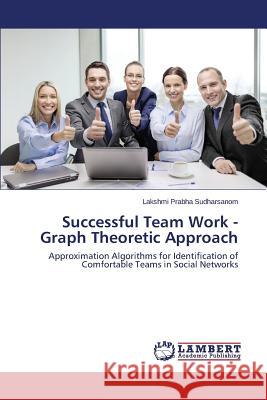Successful Team Work - Graph Theoretic Approach » książka
Successful Team Work - Graph Theoretic Approach
ISBN-13: 9783659775802 / Angielski / Miękka / 2015 / 260 str.
Under group dynamics, in any organization, it is very important to find a successful team or group, which is really a challenging job. In literature, various attributes of a team (group) are discussed regarding the success of a team, say, coordination, communication, cohesion, decision making, conflict management and so on. In this book, a new characteristic of a team called COMFORTABILITY is introduced. This book focuses on the problem of how to identify such a comfortable team in any given social network of an organization. The problem is modeled using Graph Theory. The existence of comfortable team is not guaranteed in any network. So, some more flexible comfortable teams are introduced, viz., good comfortable, better comfortable, highly comfortable and totally comfortable teams, such that they will exist always. It will be interesting to see how a comfortable team develops into a good, better and highly comfortable teams. Highly comfortable team is proved to be a successful team. As these problems are NP-complete, some polynomial-time approximation algorithms are given for finding flexible comfortable teams in any organization. Performance ratios of the algorithms are analyzed
Under group dynamics, in any organization, it is very important to find a successful team or group, which is really a challenging job. In literature, various attributes of a team (group) are discussed regarding the success of a team, say, coordination,communication, cohesion, decision making, conflict management and so on. In this book, a new characteristic of a team called COMFORTABILITY is introduced. This book focuses on the problem of how to identify such a comfortable team in any given social network of an organization. The problem is modeled using Graph Theory. The existence of comfortable team is not guaranteed in any network. So, some more flexible comfortable teams are introduced, viz., good comfortable, better comfortable, highly comfortable and totally comfortable teams, such that they will exist always. It will be interesting to see how a comfortable team develops into a good, better and highly comfortable teams. Highly comfortable team is proved to be a successful team. As these problems are NP-complete, some polynomial-time approximation algorithms are given for finding flexible comfortable teams in any organization. Performance ratios of the algorithms are analyzed.











